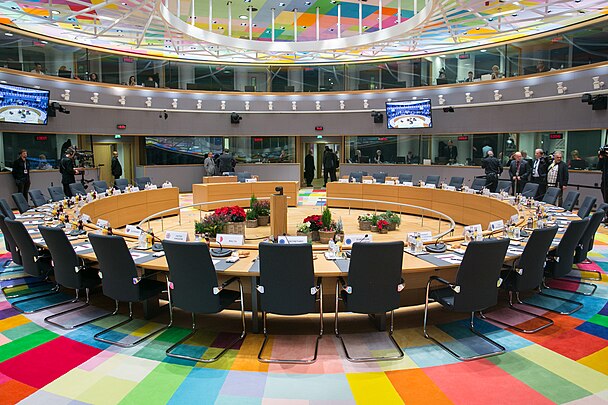Basque Government’s Excellence in EU Education Council Working Groups
19/12/2024

Under the leadership of the Basque Government, the coordination of the second semester of 2024 achieved significant milestones in managing the participation of Spain’s Autonomous Communities within the EU Council of Ministers of Education. This effort included active engagement in the Council’s Working Groups and culminated in impactful contributions to the Council’s legislative process during its November 2024 session.
During the Hungarian Presidency of the EU, the Basque Government coordinated the participation of the Spanish Autonomous Communities in the Council’s Working Groups. For the first time, an Autonomous Community directly influenced legislative documents approved by the Council of Ministers of Education on November 25, 2024. Juan Ignacio Pérez Iglesias, the Basque Government’s Minister for Science, Universities, and Innovation, presented the common position of the Autonomous Communities in the political debate of the Council meeting.
This coordination effort was spearheaded by the Basque Government’s Delegation to the EU in collaboration with its Departments of Education and Science, Universities, and Innovation, as well as the Directorate for European Affairs.
Framework for Participation
Agreements established in 2004 and 2005 govern the participation of Autonomous Communities in the EU Council of Ministers, enabling their involvement in Working Groups and Council formations. These agreements also permit the use of Basque, Catalan, and Galician to present the common position of the Autonomous Communities. For more information: Participation of Euskadi in the Council of the European Union – Lehendakaritza – Basque Government.
Responsibility for coordination rotates among Autonomous Communities every six months, covering Councils such as Education, Youth, Culture, and Sport, as well as Consumer Affairs, Agriculture, and Environment. This ensures that the Autonomous Communities defend their interests and contribute to EU legislation aligned with their competencies.
Achievements of the Semester
In the second semester of 2024, the Basque Government completed its third term coordinating education participation within the EU Council. Key accomplishments included:
- Legislative Contributions: The Basque Government proposed amendments to two legislative texts adopted by the Council:
These amendments emphasised the role of regional and local entities, cross-border cooperation, innovative educational models, and connections between higher education, businesses, and communities. They also highlighted dual education, continuous training, and regional ecosystems’ potential to drive sustainable development.
- Autonomous Community Representation: For the first time, an Autonomous Community representative directly contributed to a Working Group discussion, emphasizing education’s role in knowledge transfer and addressing challenges faced by SMEs in leadership succession.
- Policy Presentation: Minister Juan Ignacio Pérez Iglesias underscored the need for regional governments to create specialized training centers, foster public-private collaboration, and enhance skills in innovation, digitalization, and sustainability to drive growth.
Tasks of the Coordinating Autonomous Community
The Basque Government, in collaboration with Spain’s Permanent Representation to the EU (REPER), carried out the following tasks:
- Attendance and Reporting: Participated in Education Committee meetings, updated Autonomous Communities on progress, and documented outcomes via the CARUE online platform.
- Legislative Input: Drafted and submitted amendments to working documents, ensuring they reflected the collective interests of Autonomous Communities.
- Consensus Building: Coordinated the common position of Autonomous Communities for presentation during political debates in the Council.
In total, seven working group meetings were held, serving as the foundation for drafting documents later adopted by the Council.
Through its proactive approach, the Basque Government has demonstrated the value of regional contributions to EU decision-making. These efforts strengthen the role of Autonomous Communities in shaping policies that address local needs while contributing to Europe’s broader goals.
Written by:
- Camila de Epalza Azqueta, Senior EU Policy Officer, Basque Government Delegation to the UE
- Sara Armendariz, Policy Officer Assistant, Basque Government Delegation to the EU




